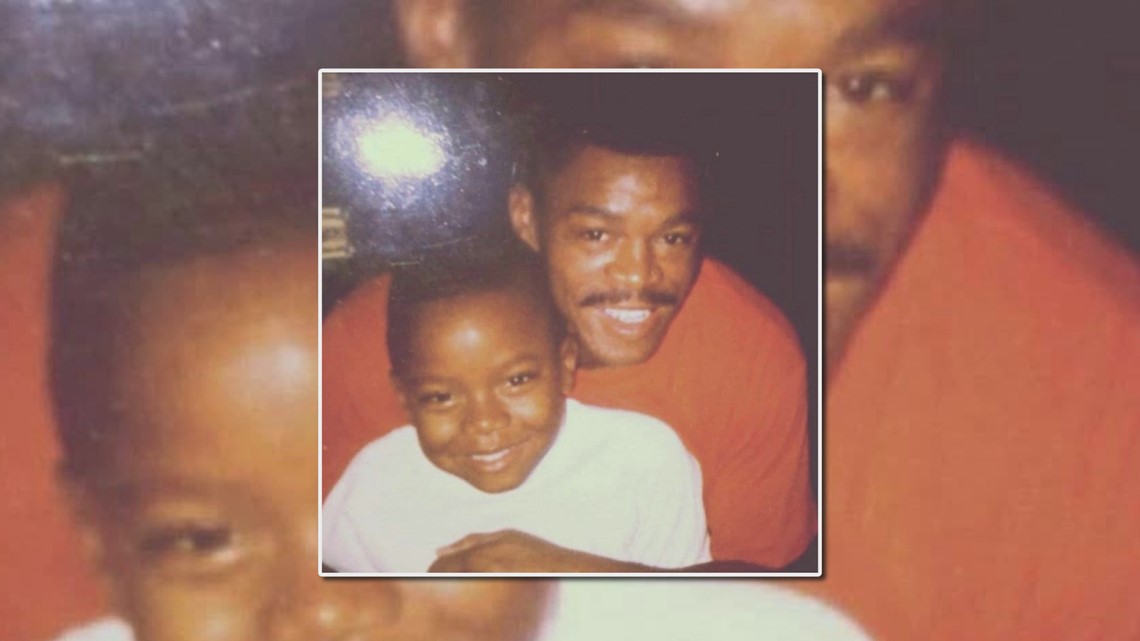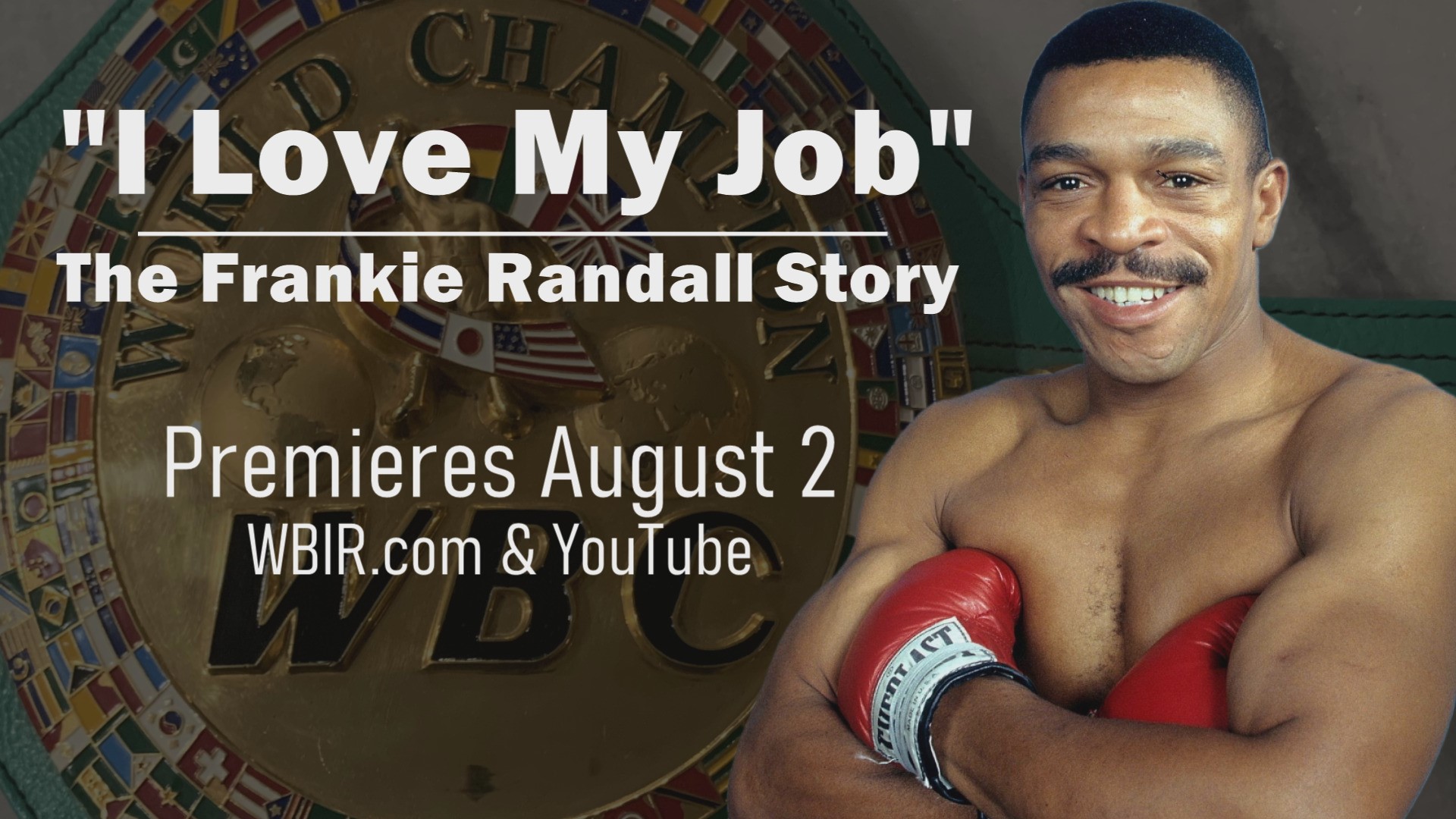'I Love My Job': The story of Frankie Randall
3-time world boxing champion and Morristown native Frankie Randall lived a life full of tragedy and triumph.
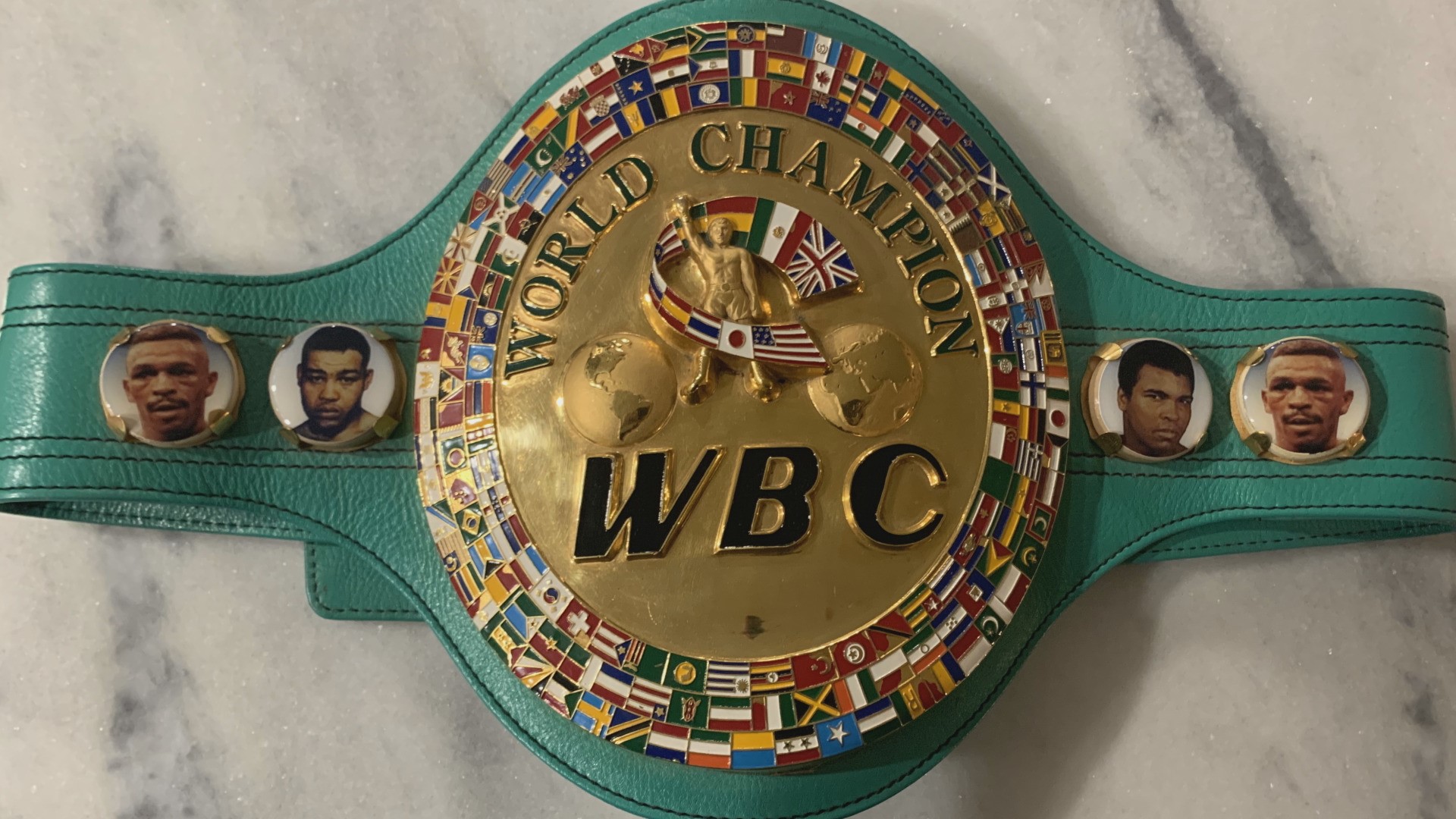
Known to the boxing world as "The Surgeon," Frankie Randall dedicated his life to the sport. From humble beginnings in Morristown, Tennessee, Randall went on to gain a multitude of championships and worldwide fame. With a career spanning more than three decades, Frankie Randall was a man who truly lived by his credo: "I love my job."
Early Life / Amateur Career
“My dad was born in Birmingham, Alabama. One of five siblings," said Frankie Randall's son DaMarcus. "My dad came from nothing, so he didn't really have a lot. His family didn't have a lot. My great aunt lived in Morristown, and he got sent to live with her when he was around eight, nine years old."
Frankie Randall grew up down the street from the Talley Ward recreation center in Morristown and would go every day to play ping-pong. Occasionally, he would peek into the boxing gym. He was noticed by Talley Ward boxer Matt Snowden who convinced him to be a part of the boxing team.
“We picked him up three days a week to go to boxing practice and he was quick and fast, and I could see he was going to be a heck of a fighter,” Snowden said.
The Talley Ward team was headed by Coach Dick King, and under the tutelage of King, Frankie began his amateur career at the age of nine. It wasn’t the start the new duo was hoping for. According to King, Frankie “got whipped in his first four or five fights,” and after every loss, Randall cried, quit, then came back.
Randall’s perseverance paid off and his fledgling career began to gain traction. After a few years of climbing the amateur ranks, the young fighter dropped out of school and decided to fully dedicate himself to the sweet science.

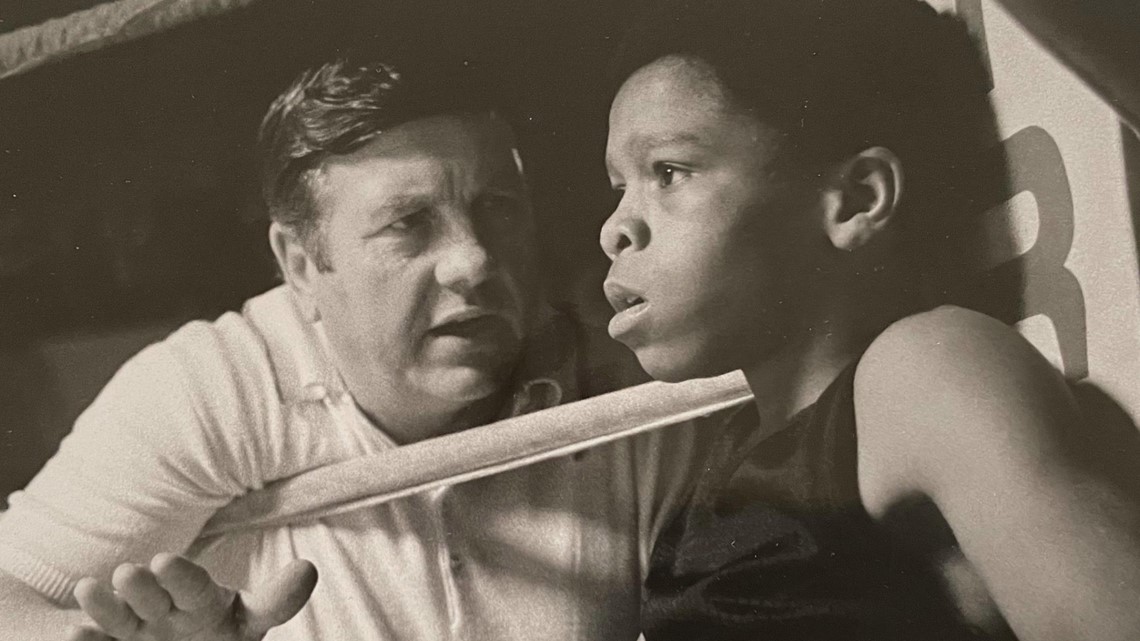
Randall would frequently fight at the Golden Gloves Arena in Knoxville where he caught the attention of fellow Southern Golden Gloves fighter Barry Audia.
“Army had this boy, and the minute he comes in the door at The Golden Gloves Arena down there, he's running that mouth. 'I'm bad news for all 132’s.' I think, ‘132? That's Frankie Randall. Oh, I'm gonna love this.’ He came in their showboating and Frankie's just taking his time and the boy probably won the first round. Second round, Frankie hit him with two straight right hands dead on the chin. He fell like a sack of potatoes,” Audia said.
From losing his first five fights, Frankie went on to win five Southern Golden Gloves titles. In 1980, he found himself in the finals of the Olympic Trials tournament.
His opponent for the gold medal match was Joe Manley from the famed Kronk Gym in Detroit. A program known for its top-class opposition.
Frankie was hanging tough through the first two rounds of the finals, but in the third, a left-right combination from Manley floored Randall. He was able to beat the count and see the final bell, but the victory went to Joe Manley.
Randall settled for the silver but went home knowing he had a bright future in the sport. Frankie Randall finished his impressive amateur career in 1982 with a record of 220 wins and 16 losses.
Early Pro Career
On February 4, 1983, Randall began his professional campaign at the Knoxville Golden Gloves Arena against another debuting boxer, Curtis Gholston from Kentucky.
The 450 people in attendance witnessed the Morristown native deliver an impressive three knockdowns. The final one came from a crushing straight right that knocked Gholston out in the second round.
With his first fight in the professional ranks in the books, Frankie Randall was off to the races in his prize-fighting career.
Two years later, Randall found himself with an impressive record of 23-0 and had garnered the nickname of "The Surgeon."
“When he was in the ring, it was like an operation. The way he operated in the ring, it was pretty classical,” DaMarcus said.
With his perfect record, Frankie was in range for a world title fight. Standing in his way was number one ranked and former world champion, Edwin Rosario.

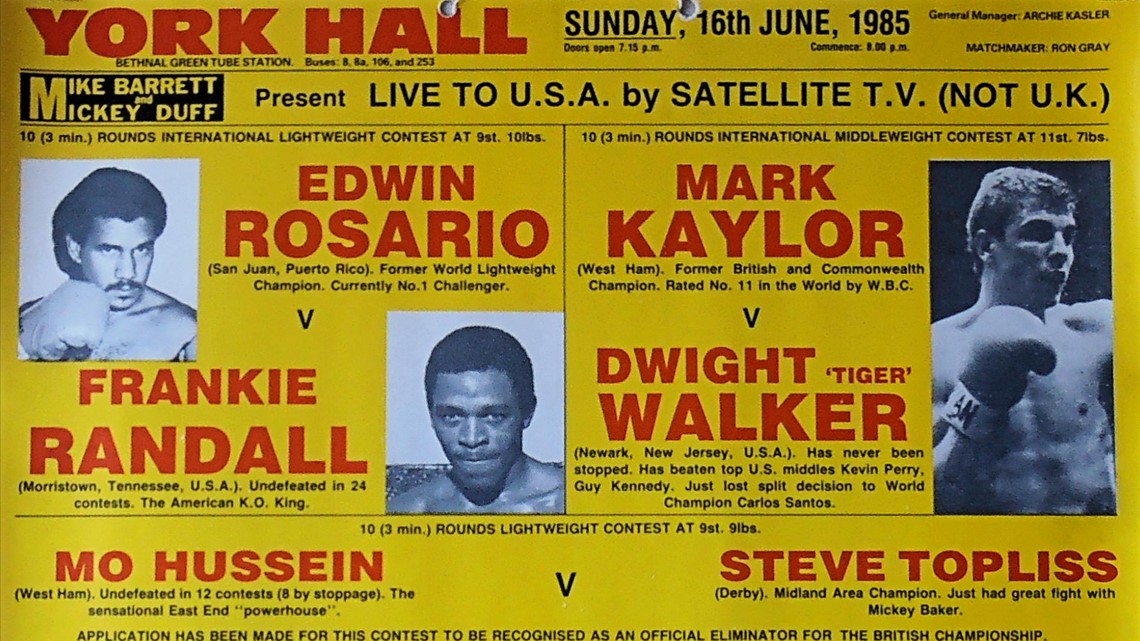
Defeating Rosario would put Frankie in line for a championship match, and he wasn’t going to let the pressure of fighting a former world champion get to him.
“It won't change my style any at all. It won’t change my attitude. He used to be a champion. So, I'm willing to get in there and perform to my best," Randall said.
Frankie came out strong to start out the 10-rounder, but Rosario took over down the stretch.
After a tough 8th round, Randall was able to make it back to his corner and finish the fight. The fight was scored 98 and a half to 98 in favor of Rosario.
Half of a point. That was all it took to stop the undefeated run of Frankie Randall. His record now stood at 23-1. His world title aspirations paused.
It would be three and a half months before Randall stepped into the ring again. He dispatched Keith Jackson in the fourth round at Talley Ward in October 1985. Two months later, he would do the same to Efrain Nieves in the second.
Things seemed to be going well for Randall’s comeback. His previous two victories ranked him in the top 15 in the world, but an incident in February of 1986 threatened to put Frankie’s career on hold.
Frankie was approached by an undercover narcotics agent posing as a local businessman who asked him to deliver some marijuana. Randall agreed. Frankie Randall was arrested for the sale of half an ounce of marijuana to an undercover police officer in Morristown. If convicted, he faced a year in jail. Randall was released on a $5,000 bond and pleaded guilty to two simple possession charges.

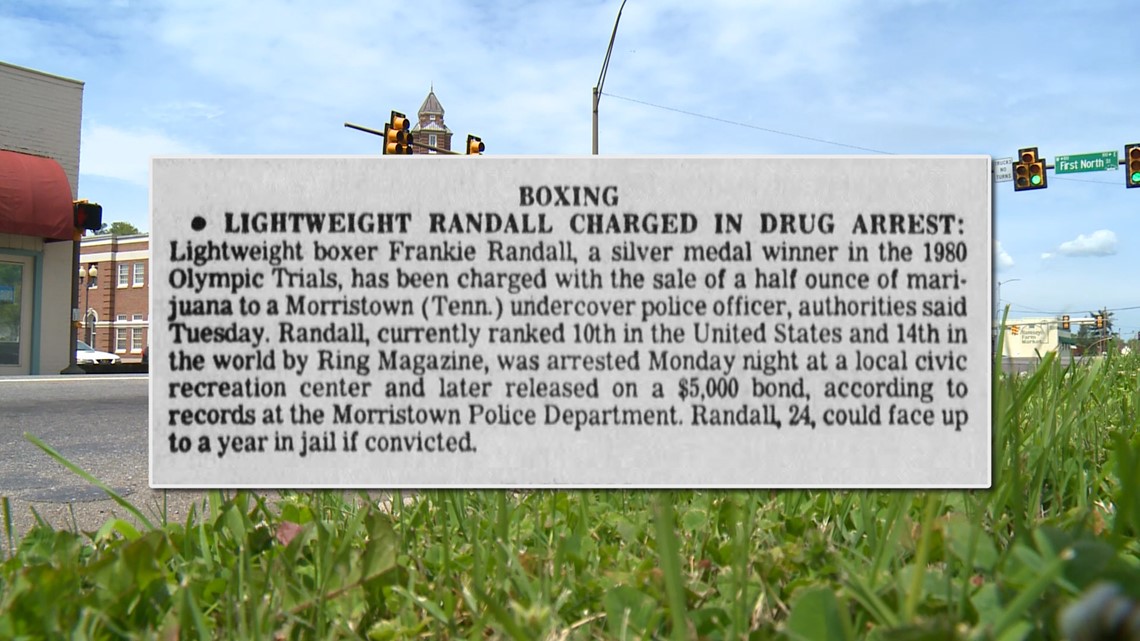
Presiding over Frankie’s case was Judge Eddie Beckner, a member of the board of directors of the Morristown Boy’s Club. During the proceedings, Beckner told Randall, ‘All the little boys that looked up to you, you’ve let them down.’
The judge fined Randall $2,000, confiscated his vehicle, ordered him to speak about drug abuse at local high schools, and hold a fight where the proceeds would benefit the Boy’s Club.
In lieu of the proposed 11-month 29-day sentence, Randall served only two months, with the remainder of the time spent on probation and training for the benefit fight.
When asked about his leniency on Randall, Beckner responded, “I’ve been on the bench 10 years, and that boy expressed as much remorse for his wrongdoing as anybody I’ve seen. The circumstances of his life as well as his obvious remorse for his wrongdoing were such that I doubt he’ll be a repeat offender.”
Randall’s benefit fight was on May 30th, 1986, against the formidable Sammy Fuentes.
The bout was a swift affair.
A straight right from Randall in the second round sent Fuentes crashing to the canvas, knocking him out. After the fight, Frankie gave a special shout-out to Judge Beckner.
“I’d like to say hello to everybody in Morristown, Tennessee for being behind me, standing beside me and giving me myself back and like say, happy birthday to Judge Beckner in Morristown,” Randall said.
With the second-round knockout of Fuentes, Frankie’s career was back on track, and he soon found himself with the opportunity to put some national gold around his waist.
The opponent standing across the ring from Randall for his U.S.B.A. Lightweight championship fight was Freddie Pendleton, whom Randall had defeated the year prior after cuts on Pendleton’s head caused the fight to be stopped.
After the full 12 rounds, the outcome of Frankie Randall’s first professional title bout was left in the hands of the judges. The result was a draw, and Frankie was undeterred by the outcome.
“I put forward I think a great effort in the fight. It was a title fight, something I always wanted. I'm still here, I still think I’m the number one contender in the lightweight division. All the lightweights out there see my effort. I'm not running, I'm coming,” Randall said.
After his draw with Pendleton, Randall won five in a row and found himself ranked highly in all three major organizations. An opportunity at a world championship remained elusive for the Morristown fighter.
Another route to a championship match would be gaining the North American Boxing Federation title whose champion was automatically ranked very highly by the World Boxing Association. So, Frankie Randall once again found himself in contention for a national championship against Primo Ramos.
This bout was also a swift affair.
Ramos sent Randall slumping onto the canvas, and he was counted out with 30 seconds left in the second round. All of Frankie Randall’s world championship hopes crushed under the weight of a single left hook.
Comeback
Frankie Randall bounced back from his loss with a nine-fight win streak, but it seemed the spotlight had diminished on his once-promising career. His name now relegated mostly to the TV guide listings in the newspaper.
During the midst of his second comeback, Randall had another run-in with authorities. In August of 1989, Frankie Randall was found guilty on two counts of selling and delivering cocaine, once again to undercover officers.
He was given two ten-year sentences to run concurrently at Brushy Mountain State Penitentiary. In total, Frankie Randall spent 14 months behind bars.
“That's one thing about my mom that she didn't sugarcoat anything. She explained to me what was going on. Most parents would try to hide that, and my mother didn't do that. I always knew the truth. There was never 'Daddy’s gone away,' it was 'Daddy’s in prison,” DaMarcus said.

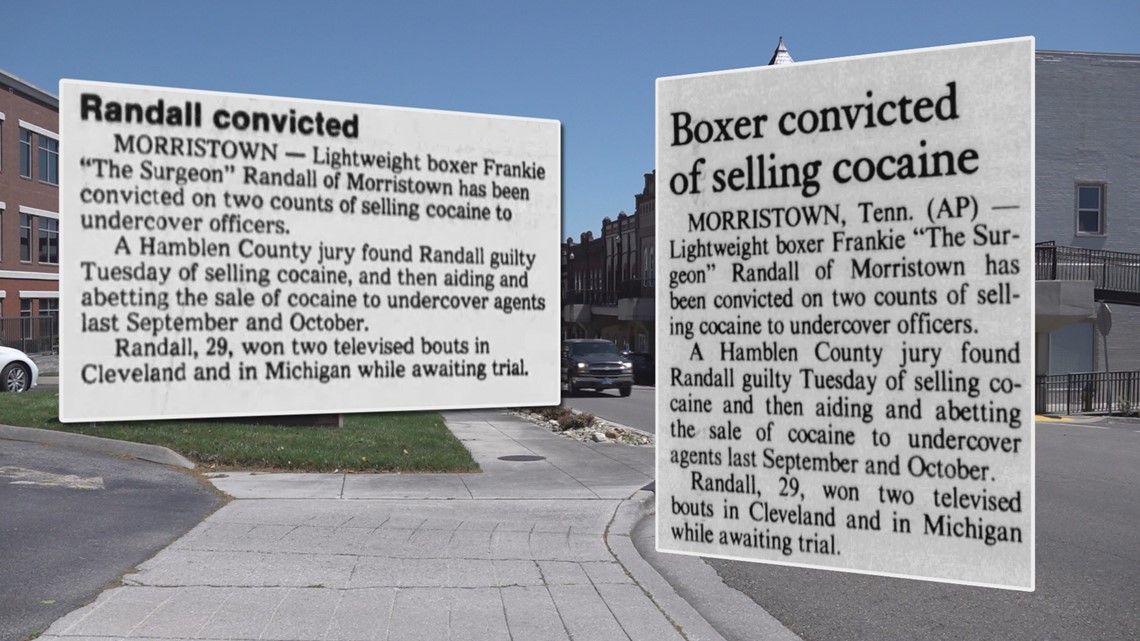
Frankie Randall’s time in prison not only cost him his championship ambitions, but according to him, it also cost him his home and marriage.
Frankie Randall was released from prison in October of 1990. Shortly before his stint at Brushy Mountain, his contractual interest was sold to Morristown doctor, Dan Hale.
“My brother contacted Dick King about buying his contract. Well, Dick was very easy to convince to sell the contract, and I think it was $26,000 that my brother paid for his contract. The problem was, he didn't tell him that Frankie was going to jail. So, Frankie was going to jail for about a year and a half and the contract ran out while he was in jail," said Don Hale, Frankie's former manager.
The Hale brothers knew they needed proper promotion if they were going to get Frankie a world title.
They visited with the likes of Joe Frazier and Gerry Cooney before finally signing with Don King, who promised Randall a world championship match if he could beat some name fighters.

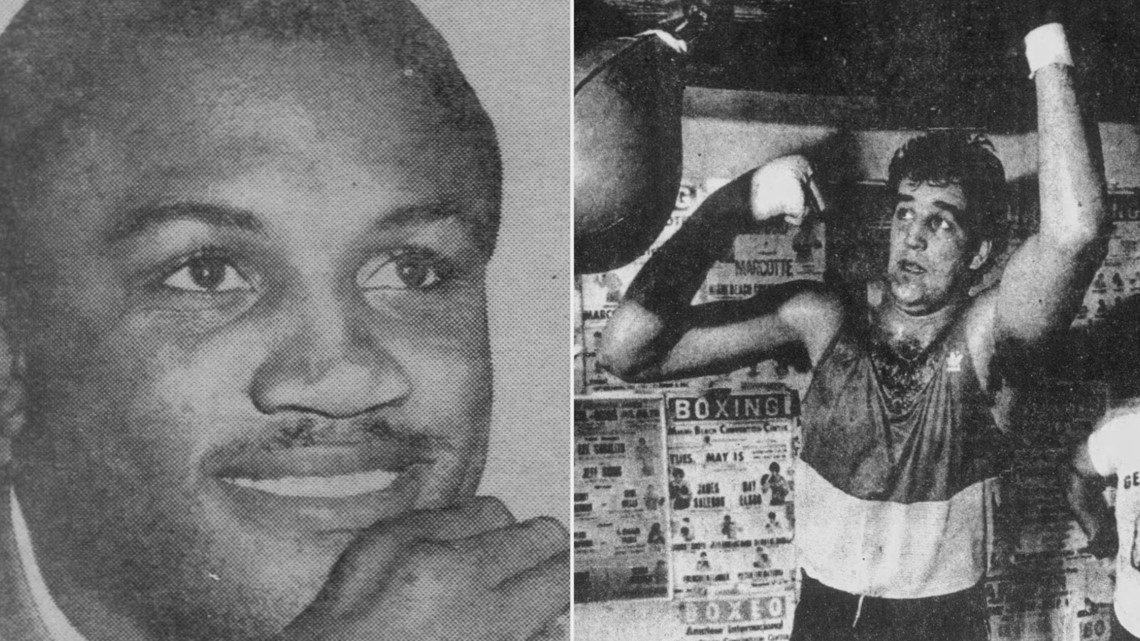
After a few tune-up fights under Don King Promotions, Randall once again faced off with Edwin Rosario for the number one ranking in the junior welterweight division.
Frankie Randall vs. Edwin Rosario II would be part of the very first fight card to take place at The Pyramid in Memphis, Tennessee.
Early in the second round, a flurry of punches put Rosario down. It was a short-lived victory for Randall, because in the final ten seconds of the very same round, a right hand sent Frankie down this time. Resilient, Randall rose to beat the count and make it back to his corner.
The fight continued into the seventh when another flurry from Randall backed Rosario into a neutral corner. One of Rosario’s cornermen jumped into the ring, towel in hand, signaling the end of the fight. Randall and Snowell embraced, but the victory was more than redemption for Randall’s first professional loss.
“That's what got him to be number one across the board in order to fight Julio Cesar Chavez,” said Aaron Snowell, Frankie Randall's former trainer.
Julio Cesar Chavez I
51 fights. 48 wins. 11 years. That’s what it took for Frankie Randall to finally get his very first world title opportunity.
"He waited for a long time to get his title shot. He was one of those individuals that waited his time. He made some mistakes in life, and he came the hard way, but he stayed the course,” DaMarcus said.
Frankie Randall’s opponent was the WBC Light Welterweight Champion of the world and living legend Julio Cesar Chavez, who boasted an unheard-of professional record of 89 wins, zero losses, and a draw.
“Boxers were scared of him. I mean, that's just a fact. You know, when you have a record like that, and he was knocking people out, left and right. When Frankie signed to fight him, I knew Frankie was a good fighter, but I just didn't think Frankie could pull it off,” said former boxing promoter Thomas "Tank" Strickland
Frankie Randall came into the fight against Chavez as a 17-1 underdog, but the aura of Chavez didn’t faze Randall’s team.
“When you look at guys as a trainer, you can see certain skill sets that a person has. Teamwork makes the dream work and it's always about the team that you have. We just had a great team,” Snowell said.

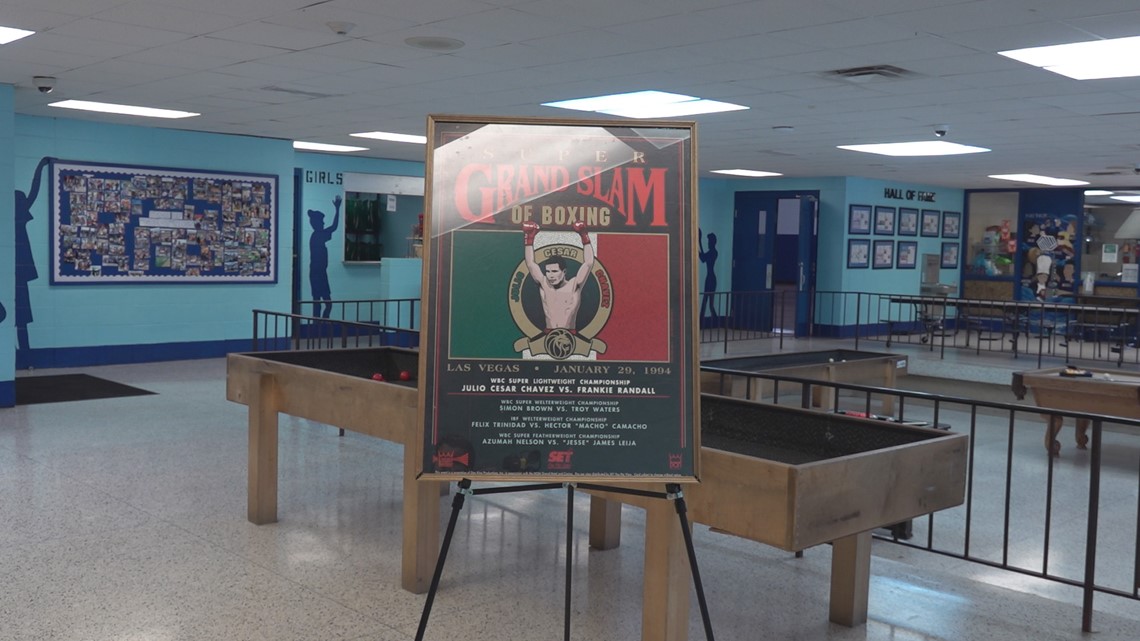
Randall versus Chavez headlined the very first boxing card at the MGM Grand Garden Arena.
“Nobody gave Frankie a chance of winning that fight. You knew that Frankie was going to give Chavez all he can handle. If you look at the fight, you see how Chavez would continue to try to press Frankie. Frankie would come right back and score again. That's the way it was entire fight,” Hale said.
Frankie Randall made it into the championship rounds against the legendary Chavez, and most observers had him ahead on the scorecards. Nothing is ever certain in boxing and to pull off the victory, Snowell knew that Frankie would have to pull off something that had never been done before.
“We know, at some point in time to dethrone a great champion, we were going to have to knock them down,” Snowell said.
Studying tape from Chavez's draw with Pernell Whitaker, Snowell concocted a plan to set up Chavez to be hit with a straight right hand.
In the 11th round, just like they had trained for, Randall hit Chavez with a perfect one-two combination, knocking down the legendary Chavez for the first time in his career.
“To me that, that knockdown was more than just one punch. That knockdown was his whole life. That knockdown for him was defeating all the odds. Coming up in Birmingham, being moved away from your siblings, I think that knockdown represented who we are as a family,” DaMarcus said.
Chavez made it to the final bell, and the two warriors awaited the judges' decision.
"Frankie had laid his head backwards on my shoulder, and I was telling him that God’s going to bless you," Snowell said as the decision was announced.
“The winner and new champion, Frankie ‘The Surgeon’ Randall!”
Frankie Randal became the first man to defeat Julio Cesar Chavez and in doing so, captured the WBC Light Welterweight championship.

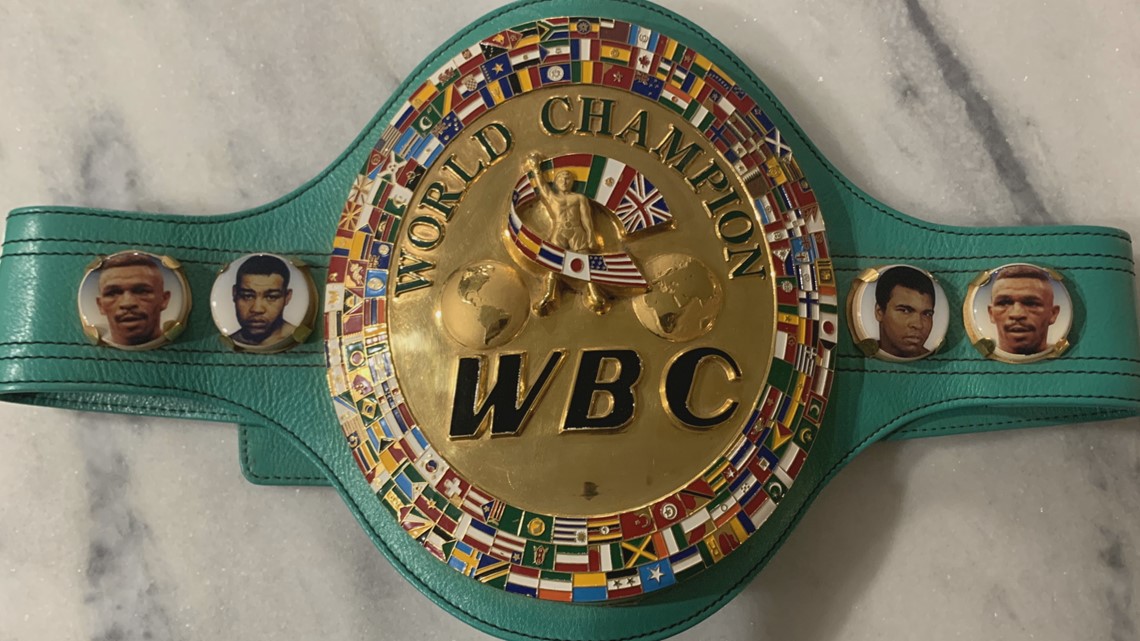
Frankie Randall christened the MGM Grand Garden Arena with one of the biggest upsets in boxing history.
“It’s like all these dreams have come true. I’ve been working hard for so long, and it all paid off. We worked hard at it, and we got it. We got the opportunity and I’m the champ now,” Randall said.
Julio Cesar Chavez II
The aftermath of the Chavez victory was tumultuous for Randall. Along with his newfound fame, six days after defeating Chavez, he married his long-time friend Janice and lost his father.
The rematch with Chavez loomed on the horizon, a mere 3 months after their first encounter.
The fight was set, on May 7th, 1994 at the MGM Grand Garden Arena. This time, DaMarcus would accompany his father to the match.
“You know, I would lead him out, I'd go back to the dressing room, get my composure, then I might have come out in the later rounds. He knew that I was anxious. So, even before the fights, he would always let me know he was okay,” DaMarcus said.
The rematch began as the first fight had ended: with Frankie getting the upper hand on Chavez.
“First of all, Frankie beat Chavez, more the second fight than he did the first fight. He was getting ready to knock Chavez out," Hale said.
By the end of the eighth, Randall and Chavez were still standing toe-to-toe and trading blows, and right before the bell, a clash of heads opened up a cut above Chavez's eye.
“The headbutt was crucial. If you look, when Julio butted heads, Julio was shaking his head, meaning if a fighter does that, that means they don't want to fight. They quit. Flip Hamansky, who was the doctor, had stepped up on the apron of the ring to look at him, and the rule in the WBC rulebook at the time says that the fighter that’s not bleeding on the butt, they get one point taken away,” Snowell said.
The fight was stopped on Hamansky’s recommendation due to the headbutt and went to the scorecards.
With the point deduction for the headbutt, Julio Cesar Chavez was declared the winner.

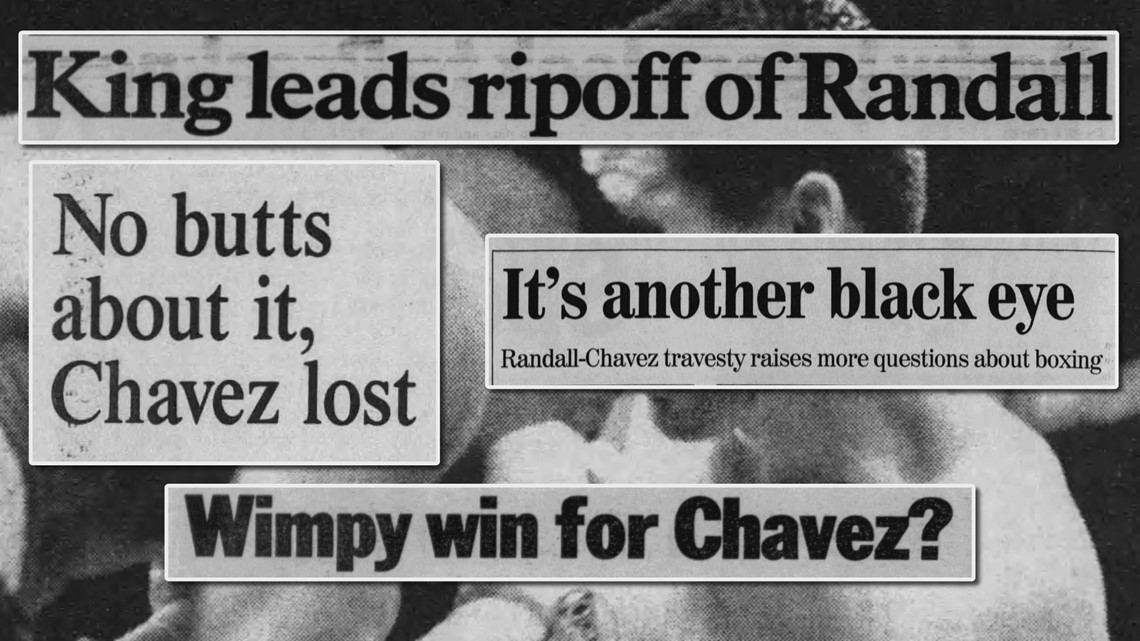
“I feel like the whole play of this whole ordeal was going based on Chavez, Chavez, Chavez. I was a champion in my heart, and in my spirit, I know that I’m still a champion. People saw the fight. I feel like I've done a very tremendous job. Right now, I want to take a vacation, let myself heal up. I went to my father's funeral. I got married and my father died on the same day. I need a break. I haven't had time to even be myself,” Randall said.
Randall vs. Chavez II was the final bout where the headbutt/point deduction rule was used by the World Boxing Council. Frankie Randall hoped to get a third fight with Chavez in the aftermath of their first two bouts, but it never materialized.
"The sad part is, Chavez was never ever going to fight Frankie again in their prime. King wouldn't let him at that point,” Hale said.
The next step for Randall was fighting for the WBA version of the world Light Welterweight championship on the undercard of Julio Cesar Chavez’s next fight. Frankie’s opponent was reigning champion and southpaw Juan Martin Coggi.
“Juan Martin Coggi, the great champion, he was champion over 6 years. Frankie had that chip on his shoulder everything to prove,” Snowell said.
The chip on Frankie’s shoulder proved useful as he would knock the long-reigning Coggi down three times in the fight en route to becoming a world champion twice in the same year.
Frankie Randall began 1994 in relative obscurity and closed out the year a two-time world champion, and had cemented himself as part of boxing’s elite.
Demons
Outside of the ring, Frankie Randall was a kind and generous man to those that knew him.
“Frankie would give a person a shirt off his back. When he rose to the top, he helped a lot of different people that were struggling in Tennessee, because he was once there," Snowell said.
However, Randall wasn't without his demons.
“Alcohol problems. Drug habits. Struggles with addiction. It's something that we're not proud of. If he was here, he wouldn't be proud of that," DaMarcus said.
It went as far as Frankie getting drunk the night before fights.
"The first time I knew anything about it, we were fighting in Monterrey, Mexico, and the number one contender was “Rocky” Rodney Moore out of Philadelphia," Hale recalled. "After the fight, I’m in the back and Fred Jenkins, who was Rodney Moore’s trainer, comes over and starts putting his finger in my chest and said, ‘Okay, Don, what you got him on?’ I said, ‘What are you talking about, Fred? We don't have him on anything.’ He said, 'Well, I know you do, because we saw him every night this week coming in drunk, and people would have to carry him into the hotel. Last night at five o'clock someone carried him in the hotel. He was so drunk he couldn't walk.’ That night he destroys Rodney Moore.”

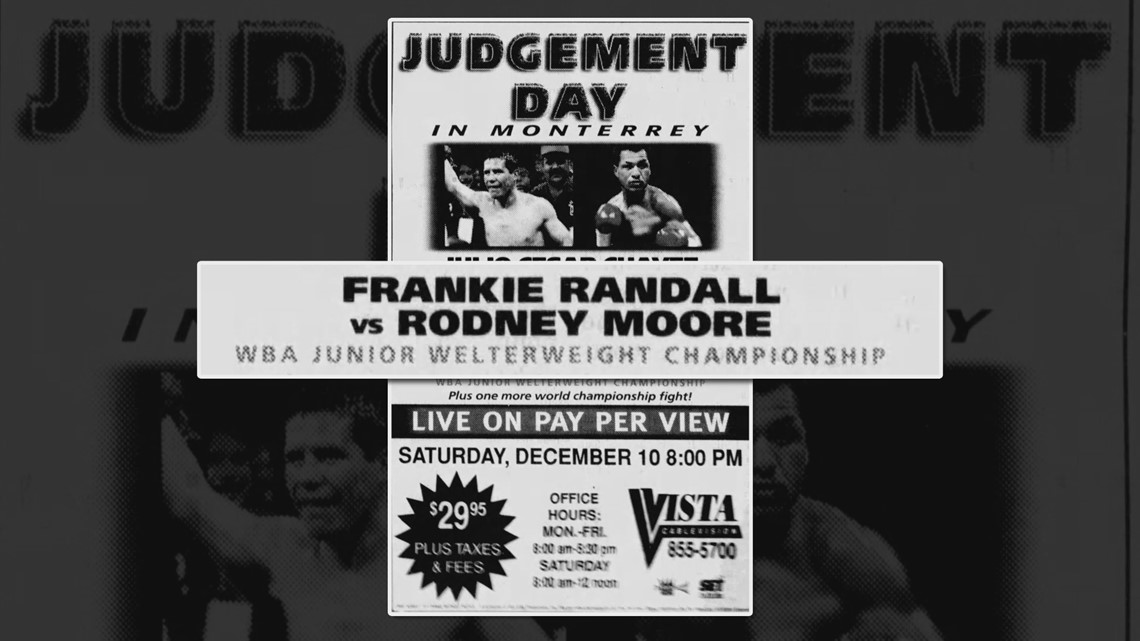
DaMarcus believes what his father experienced during his early life contributed to his demons.
“Being a kid from Birmingham, five siblings, coming up in the 60s, not having a lot, in Alabama during segregation times, getting split up from the family, your mother gets buried, you don't get to go to the funeral. I think those are some of the things that haunted my dad the most," DaMarcus said.
There were times in Frankie's life when he tried to quell his demons, going through long stretches of sobriety in the process.
"We put him in drug rehab. Then he stayed with me, and for six months, he was clean. I was thrilled with what was happening. He was training. He was looking good, feeling good. Don (King) took him down to Florida to train. He went to a party with Hector Camacho, so the story goes, Hector said, ‘Frankie, let's go ride around.’ and there he was, gone again," Hale said.
Regardless of his life outside of the ring, between the ropes, Frankie was still a world champion.
After two successful title defenses, Randall found himself standing across the ring from Juan Martin Coggi once again.
"He was winning the fifth round, and there's a headbutt. No blood. Coggi sticks the glove up to his eye like he's hurt. He goes back to his corner. The corner is yelling in Spanish to go down. Coggi lays down and will not move, will not get up,” Hale said.
Coggi was eventually transported out of the arena on a stretcher. The fight went to the scorecards and due to a second-round knockdown by Coggi, he was declared the winner.
Frankie had once again lost his championship, but this time, he was granted a third fight with a man that defeated him under dubious circumstances.
“We had to go down to Buenos Aires to get the title, Juan Martin Coggi’s home country. In that fight their heads clash again and this time, Frankie fell out. The funny thing, I was saying ‘Frankie get up, you can't win like that.’ He stayed down there for a minute. He started winking his eye and got up, but we ended up capturing the title again down there," Snowell said.

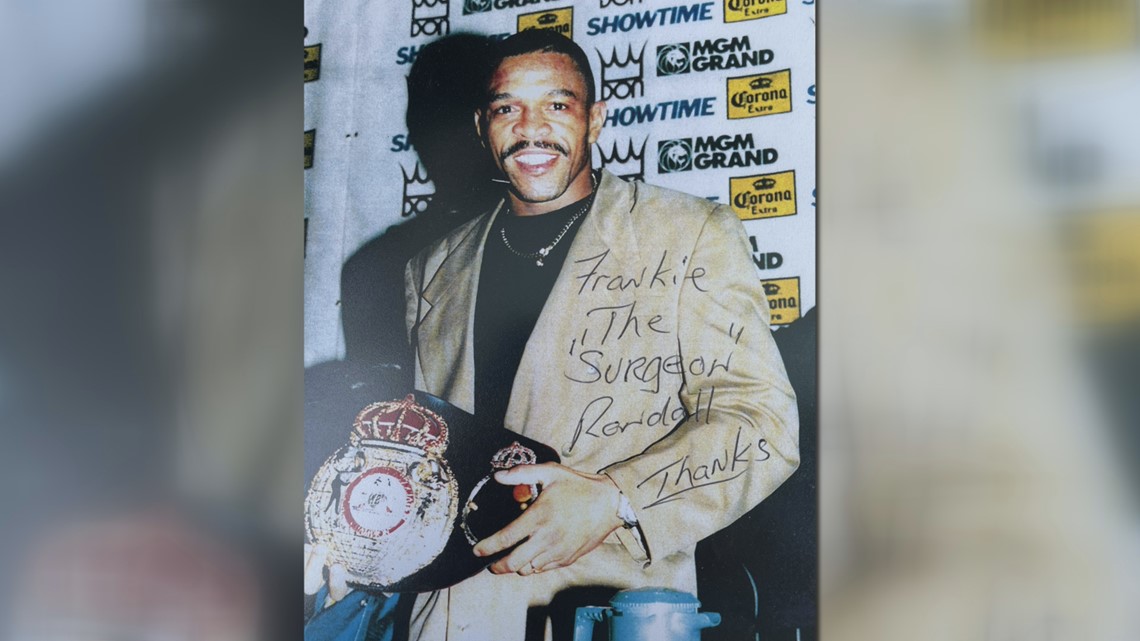
Frankie “The Surgeon” Randall became a three-time world champion, but a mere week after regaining his title, was convicted of driving under the influence.
To make matters worse, his urine test for the third Coggi fight tested positive for numerous substances including cocaine, according to the Argentine Boxing Federation.
Despite his most recent setbacks, Frankie Randall kept his championship and would be defending his WBA light welterweight title in a homecoming of sorts at the brand-new Nashville Arena in January of 1997.
“The fight in Nashville, I don't think he was ready for it mentally, physically. He wasn’t training as hard. He was probably not living the best of lifestyles,” DaMarcus said.
Don Hale took Frankie and his wife out for dinner and made sure Frankie was back in his hotel room by 10 pm.
"I was told later that he left at 11 o'clock and came in stumbling drunk at five o'clock in the morning,” Hale said.
Randall's night out played a huge factor in his fight with Khalid Rahilou.
“I noticed that the end of the fifth round Frankie got caught with a few shots. In the 11th round, Frankie was still ahead on all three scorecards, and they stopped the fight because he was too tired to continue,” Hale said. “Once he lost the title, he lost a lot of desire at that point, and he started fighting for money.”
After his loss to Rahilou, Frankie took an 18-month sabbatical from the ring.
He returned in July 1998 and racked up two victories before dropping a 10-round decision to Oba Carr. That defeat began a seven-fight losing streak for Randall.
“When that's all you know, it wasn't about the wins and losses at that point, it was about survival. It was about making money. It was about getting a check. It was about using your craft. Because your craft used you,” DaMarcus said.
Julio Cesar Chavez III
By 2004, Frankie Randall had lost nine out of his last 12 fights and his former rival, Julio Cesar Chavez, was in the middle of a retirement tour.
“Jose' Sulaiman called me and told me he wanted Chavez to have a fight because Chavez was broke, too. He said ‘I want to have a fight where he can make some money’, and said, ‘I'll pay Frankie $100,000 to come fight him.’ So, we took the fight,” Hale said.
A decade after their first encounters, Frankie Randall finally got his third match with Julio Cesar Chavez. No championships were on the line, only pride.
“Frankie trained for the fight. Nothing like what he did before, but I mean, he was in decent shape compared to what it had been, and we knew fighting Chavez in Mexico you know, winning the fight probably wasn't an option at that point,” Hale said.

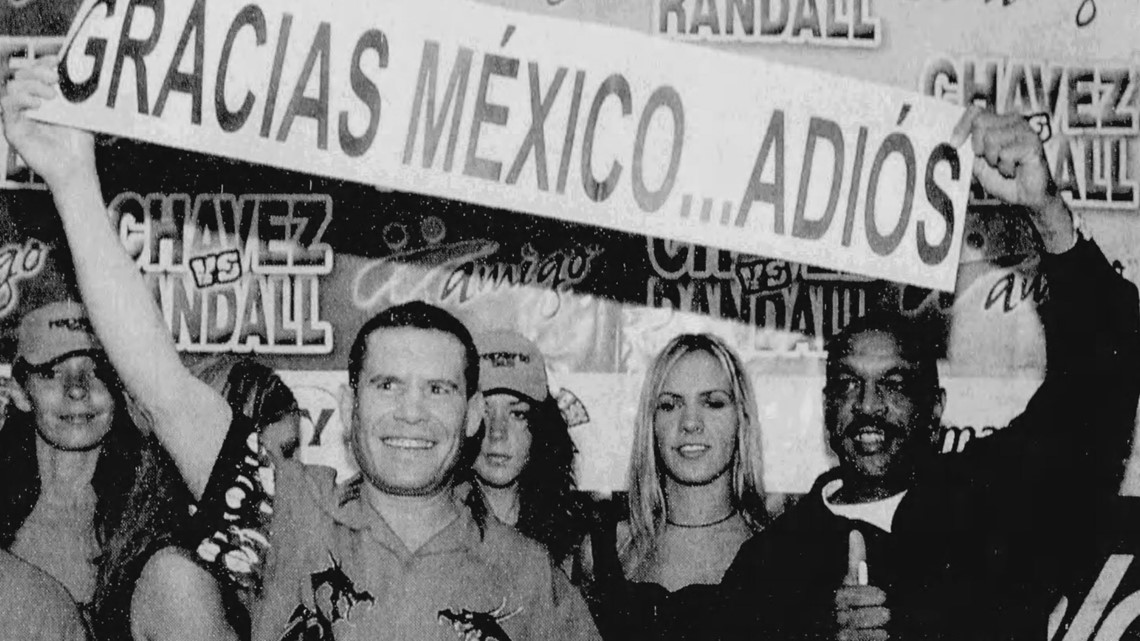
Frankie’s team would look a bit different for the rubber match with Chavez. His son DaMarcus would act as a cornerman and would help his father down the stretch after a particularly brutal low blow.
“Don Hale looked at me and he's like, 'He's about to quit,' and me personally, I couldn't let him do that. So, I got up in the ring. I worked his corner. I told him, it's just me and you. Whatever you do, don't quit. Keep going, finish the fight. I could tell from that moment that he knew it was just me and him. He was looking in my eyes and I know he didn't quit because I got up in that ring. That's something that I'm going to carry with me until I’m gone,” DaMarcus said.
Julio Cesar Chavez won the decision, but Frankie stayed on his feet to hear the final bell. The two fighters embraced, closing the book on their decade-long rivalry.
Frankie Randall continued fighting until the following year. His final match would be at Gund Arena in Cleveland, Ohio against junior welterweight contender, Craig Weber.
“Fighting Randall, you know, he’s older, but he’s still dangerous. I have to be at the top of my game. He was past his best, but Frankie Randall is Frankie Randall,” Weber said.
Craig Weber defeated Frankie Randall via a sixth-round TKO. After 22 years as a professional fighter, Frankie “The Surgeon” Randall retired with a record of 58 wins, 18 losses, and 1 draw.
Life After Boxing
“Retirement. You know, he went through some hard patches. He went through some rough times. He was in and out of jail a little bit through bad choices, bad decisions, dealing with addiction. Then things started to happen. He wasn’t the same individual anymore. His mind started slipping. You could tell something wasn't right,” DaMarcus said.
DaMarcus and his family checked Frankie into a facility in Chattanooga to get him the mental help he needed. While there, Frankie was diagnosed with Boxing Dementia.
“The early symptoms are changes in behavior and personality. So, it's subtle things in the beginning. It's not severe memory loss, and severe Parkinson's symptoms right in the beginning. At the last stages, you have very severe cognitive deficits. Your body falls apart. Your body could be injured from the sport, but now you're very stiff. You can have Parkinson's like shuffled tremors, loss of balance, and then also have loss of bodily functions,” said Dr. Monica Crane of Genesis Neuroscience Clinic.
As Frankie's health began to deteriorate, his family moved him from the facility in Chattanooga to be so they could be closer to him.
“I watched my dad die twice. I watched my dad die when they diagnosed him with that, and then I watched him pass away physically. That was something that took a toll on me. It was hard to walk in a room and your hero not know who you are. He didn't know who I was,” DaMarcus said.
After nearly a decade of living with dementia, Frankie Randall died on December 23, 2020.
“When Frankie passed everything was taken care of. They did a beautiful job with the services and burying Frankie. His son Marcus really, really took care of him in the end, like a real son who Frankie loved.”

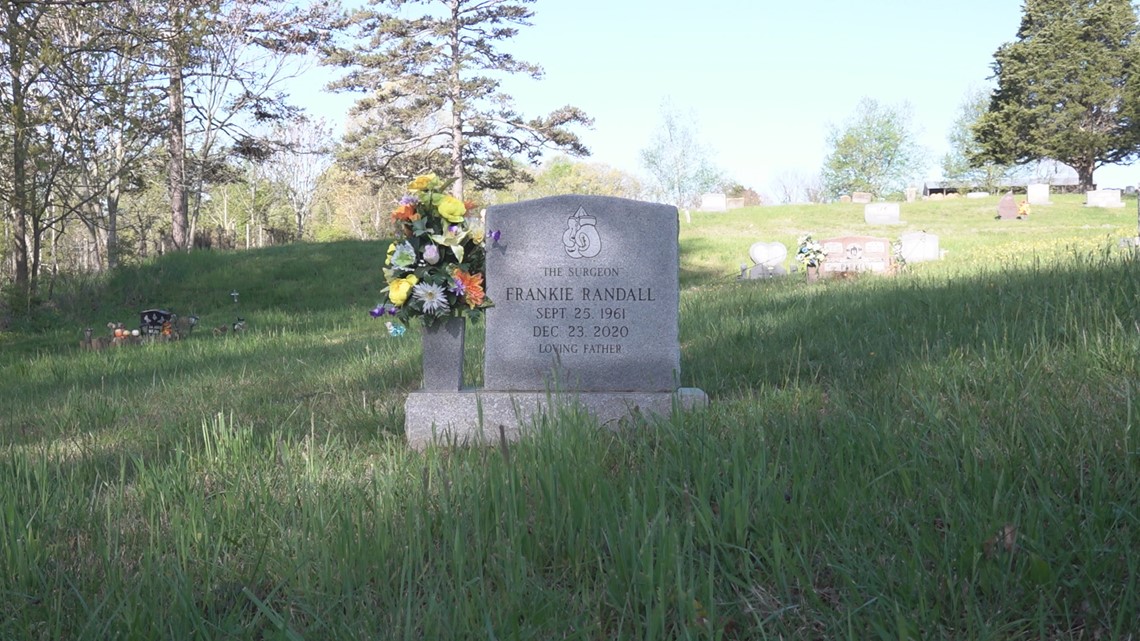
Legacy
“There is no better perseverance story than Frankie Randall,” Audia said. “He had to endure a lot of ups and downs, and he made it. World champion. How many people can say they were a world champion? Not very many.”
Frankie Randall's mantra was "I love my job." It's something he said repeatedly during training and carried with him every time he stepped into the ring.
"That's something I have tattooed on my arm. It’s his favorite quote," DaMarcus said. "He gave his blood, sweat and tears to the sport of boxing. So, that's something I truly believe that he lived by. I don't think he would have been as great as he was if he didn't love his job.”
While Frankie was on top, he worked with many young fighters, including a young Floyd Mayweather Jr.
"I always said if Frankie could have just beat the demons, he could have probably been one of the all-time great trainers because the kids loved him. He loved the kids, and he knew what he was doing more so than any trainer that I was ever around,” Hale said.
To his son DaMarcus, Frankie Randall is far more than just his accomplishments in the ring.
“My name is Frankie Randall, by the way. You know, that’s something that took me a long time to grasp, to fully understand. It was something I ran from, but my name is Frankie DaMarcus Randall," DaMarcus said. "That's my dad. To the world, he was a great boxer. He was good at his craft, but at the end of the day, that was my dad. He was my hero. He was everything.”

